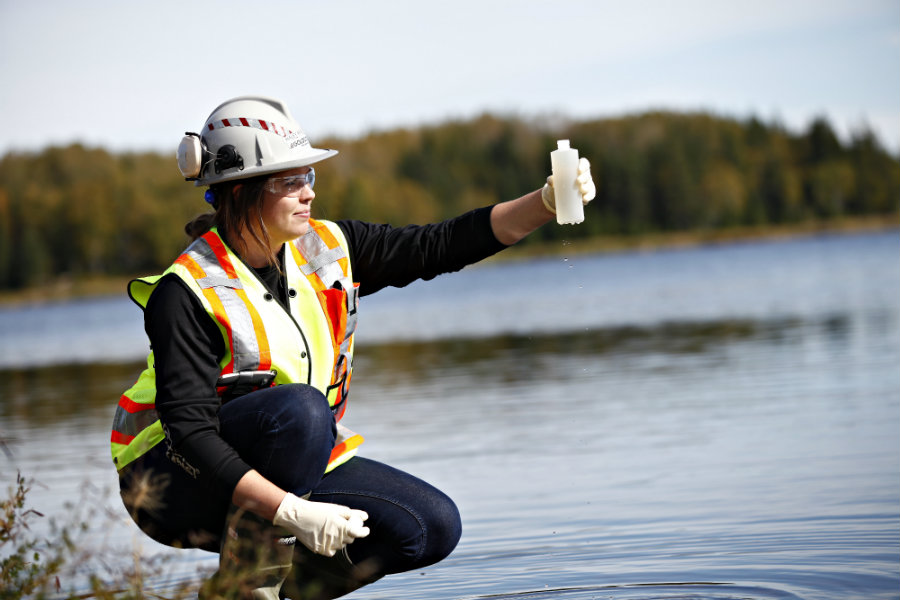
Canadian mining company Goldcorp, which estimates that it manages more water than ore by mass, is now pioneering a new approach that aims to dramatically reduce the use of water in its operations and is aiming to eliminate the need for traditional slurry tailings altogether.
There are financial, environmental and social drivers behind Goldcorp’s innovative Towards Zero Water (H2Zero) initiative, explains Brent Bergeron, EVP for corporate affairs and sustainability.
“First, from a human rights perspective, we mine in areas that are very remote, where the local people are often dependent on agriculture and aquatic resources. The use of water for them is extremely important and can cause conflict in the area.
“Secondly, reducing the cost of moving water around a mining site, storing it, and treating it is very important to us from both a financial and an environmental perspective.”
One of Goldcorp’s first steps towards improving water management has been to increase water recycling rates at its mines. At the Musselwhite gold mine in Northern Ontario, Goldcorp has installed an underground water recycling system that has cut its daily consumption of fresh water from a nearby lake by almost 40%.
“At some of our sites, we are recycling nearly 90% of the water we use.”
Brent Bergeron, EVP, Corporate Affairs and Sustainability.
At the same time, as part of Towards Zero Water, Goldcorp is developing a revolutionary system for mine waste management: EcoTails. This innovative process combines filtered tailings with waste rock, and results in the potential for some important environmental improvements including; reducing the overall size of mine waste storage facilities, increasing the stability of these facilities, and a major reduction in the amount of water trapped in tailings.
“With EcoTails, we could make a step change reduction to the mining industry’s environmental footprint,” Bergeron says. “We expect to see significant results from our pilot projects in 2018. Following a successful test phase, we can start deploying the technology at our sites in Canada and Latin America”![]()
As published in TIME magazine









